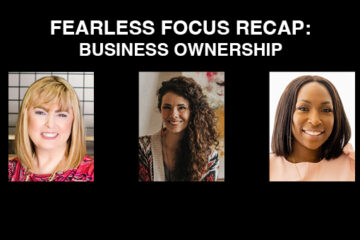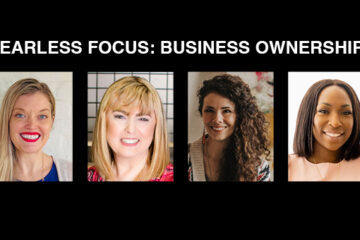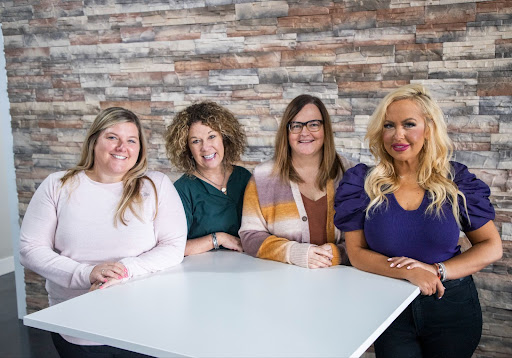
In 2020, the U.S. saw the highest rate of new entrepreneurs on record – on average, 3.8 out of every 1,000 adults, according to the Ewing Marion Kauffman Foundation.
Another study, published by the World Economic Forum, found that women started 49% of new businesses in the U.S. in 2021, up from 28% in 2019.
I recently talked with four women, who are all friends, about why they chose to become entrepreneurs, the importance of having support systems, and what they’ve learned along the way. All of them worked in the corporate or nonprofit sectors before going off on their own.
The following quotes have been edited and condensed for clarity.
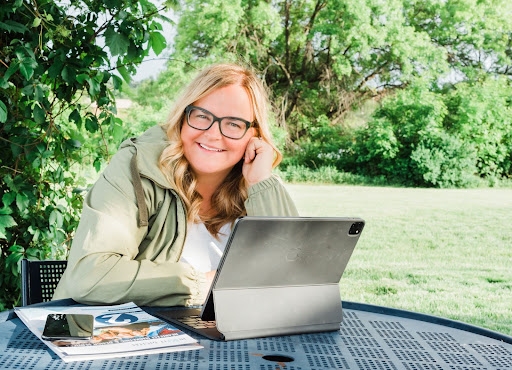
Mel Guanci, owner and founder of Hot Cocoa Moment, a consulting company that specializes in business growth strategies, and founder of In2It Digital, a marketing company.
On why she left her job: I worked in retail for 20 years, starting in the ’90s. It felt purposeful, and that was really important to me. Between 2006 and 2009, retail changed a lot. I had my first baby in 2010, and nights and weekends became really hard. I made a couple of transitions trying to find a new home for myself and I eventually found my way into marketing after realizing how inaccessible fabulous marketing is. I wanted to create quality marketing and make it accessible to small business owners and startups.
On being your own boss: There’s always incredible highs and extreme lows. Try to always have a reserve; that way you can ride the wave. What terrifies people is the stability, and the ability to care for themselves and their families.
On collaborating with other female entrepreneurs: I think to collaborate, someone has to have confidence to ask for help. You’re more vulnerable [as an entrepreneur], which allows you to be more open to collaboration, versus competitiveness. Competitiveness is dying. The businesses that are going to make it in the future are collaborators. Also, with the influencer space, micromarketing is going to be huge for the future. It’s not always going to be about consumerism; it’s about relationships and collaboration. I saw this shift during COVID. People were stuck at home, lonely, isolated and were craving human connection again.

Leisa Fox, founder of Fox Growth Strategies, a fractional business development firm
On why she left her job: I got to a certain point in my life that my time was super valuable and I didn’t want to work with people I didn’t like or trust. Owning your own business gives you the freedom to choose who you hang out with. … This allows me to live out my purpose in life. I love connecting people. I love making things better. How many meetings are you a part of in corporate America? I don’t want to have to justify my existence. I want to actually do things for people and help. I did not want to follow artificial, bureaucratic, man-made boundaries that make no sense.
On being excited about working: We’re sitting here on a Friday. Back in the day when I was in corporate America, I could not wait to get to Friday. I’d get a sinking feeling on Sunday at noon. Now on Sundays, I’m excited to go to work. I look at my calendar with anticipation.
On how faith plays a role: I have immense, enormous, deep faith. My partner needed to replace a water pump in his car. That’s $2,500. We literally got a call from a client the next day saying they needed to do a little project, worth $2,500.
On having confidence: You have to be humble enough to know that you don’t know everything.

Brie Pinnow, co-founder of Blinc Digital Group, a product management and marketing consulting firm
On why she left her job: I worked with one of my best friends in corporate America as a project manager. I’d say we were pretty much crushing it. We were at the top of our game at age 32. We were on a client trip in Las Vegas, and my friend came into the hotel room with champagne and said, “We’re quitting. We’re going to be consultants. We’re going to do exactly what we do today, but for more people.” There wasn’t a big straw that broke the camel’s back.
How she thinks about income: The way I coach myself through the scariness of not having a steady paycheck was to first tell myself that that’s an illusion. I could be let go at any moment. I kept telling myself, “I’m going to place a bet on me. I know me. I know I can pull myself up by my bootstraps. If I’m going to place a bet, I’m going to place it on me.”
On having confidence: You have to have that combination of being intentional and vulnerable. You have to put yourself out there.
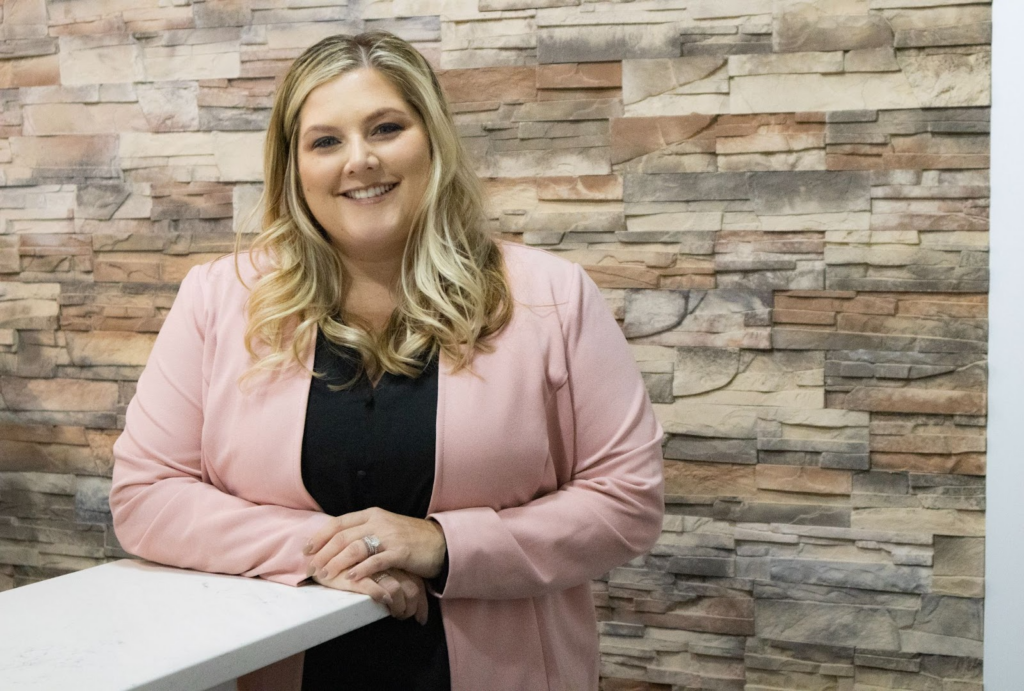
Nicky Wallace, owner of HireDSM and RecruitDSM, recruiting and staffing firms
On why she left her job: I went on maternity leave, came back, and they were not supportive at all. They told me to work harder when I asked for help.
On seeing other women become entrepreneurs: I think a lot of people are more open to taking a shot on themselves. COVID taught us that we can be flexible, and we can pivot.
On having confidence: Even my worst days here don’t even touch the bad days I had before. I’ll lie on my couch and think, “Why am I doing this?” But then I’ll say, “I believe in myself, I have a network of people that believe in me.” We have to be confident in ourselves. I was told for so many years over and over that I wasn’t enough. It took time for me to figure out why I am the way that I am. But once you gain that understanding, you can go live how you’re supposed to live.
On collaborating with other female entrepreneurs: There’s space for all of us. Without collaboration and partnerships, I truly don’t believe I would be where I am.

